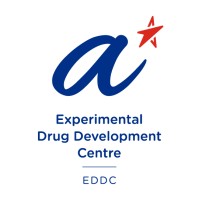Translational Platforms

To support companies on their innovation journey, we have set up translational platforms to enable enterprises to better tap on the ideas, expertise, and science and technology capabilities of our public research institutions and other innovation ecosystem players.
Existing translational platforms have been set up in areas such as drug development, clinical diagnostics, and additive manufacturing (see examples below). In RIE2025, we will catalyse industry growth in sectors where we have developed R&D strengths, and build collaborative and synergistic ecosystems that will foster cross-pollination of knowledge.
Diagnostics Development Hub
Diagnostics Development (DxD) Hub was established in 2014 as a national platform to bridge the gap in productisation of diagnostic products and services, and de-risk the adoption of publicly-funded diagnostics intellectual properties by the industry.
Over the years, DxD Hub has developed core capabilities in diagnostic product development and digital health that enables it to create ready-to register diagnostics solutions with effective go-to-market strategies. DxD Hub also hosts the Digital Health Accelerator, a collaboration between Singapore’s Ministry of Health, Public Health Institutions, and ASTAR to support the adoption and scaling of digital health solutions. With its deep understanding of the market, DxD Hub has developed effective partnerships with both public and private sector organisations.
Rising to the challenge of supporting Singapore during the COVID-19 pandemic, DxD Hub accelerated the development and adoption of a number of COVID-19 testing solutions with end-to-end innovations such as deep throat saliva testing, improved automation, and AI enabled batch-reading.
In RIE2025, DxD Hub aims to expand its core competencies and capabilities and build into Integrated MedTech (IMT) and Digital Diagnostics (DDx). DxD Hub also supports the Diagnostics Incubator under the Programme for Research in Epidemic Preparedness and REsponse (PREPARE) initiative to focus on building just-in-time assembly of robust diagnostic prototypes in the event of a disease outbreak.
Experimental Drug Development Centre
Established in 2019, The Experimental Drug Development Centre (EDDC) is a publicly-funded national platform for drug discovery and development, focused on developing therapeutics that save or improve the lives of patients in Singapore, Asia and around the world. By collaboratively with public sector and industry partners, EDDC translates Singapore’s biomedical R&D into healthcare solutions, with a focus on Asian-prevalent diseases. EDDC has played an important role in supporting the local biotech ecosystem through strategic partnerships and contributed to translational research in cancer, infectious diseases (e.g. COVID-19), ophthalmology, fibrosis and other diseases.
In January 2023, the EDDC team got Investigational New Drug (IND) approval from the United States Food and Drug Administration (FDA) to start clinical trials for the first made-in-Singapore antibody-drug conjugate (ADC), EBC-129. This development was a joint effort together with the National Cancer Centre Singapore (NCCS), and ASTAR’s Bioprocessing Technology Institute (BTI), and the Institute of Molecular and Cell Biology (IMCB). EBC-129 selectively kills cancer cells across a range of solid tumours, while sparing normal health cells, and could potentially address an unmet need for many patients.
In RIE2025, EDDC aims to increase its impact by working with the Singapore ecosystem to advance and translate early stage drug discovery projects, build new capabilities and platforms, to transform human health.
National Additive Manufacturing Innovation Cluster
Established in 2015, the National Additive Manufacturing Innovation Cluster (NAMIC) aims to accelerate the adoption of hybrid and digital additive manufacturing (AM) technologies under Singapore’s Manufacturing and Economy 2030 Vision, helping industries transform towards innovation and high value-added manufacturing using sustainably sourced, nature-based designs and cradle-to-cradle on-demand manufacturing.
NAMIC achieves this by focusing on value capture and creation through an industry sectorial engagement approach, leveraging on public-private partnerships and R&D investments, supporting translational research, and accelerating industry test-bedding towards commercial scale-up.
Companies such as Mencast and Sembcorp Marine have collaborated successfully with the Singapore University of Technology and Design (SUTD), ASTAR and NAMIC to develop and deploy large-format robotic 3D printing technologies for the design, repair and production of ship and offshore parts.
In RIE2025, NAMIC will continue to grow its international outreach, identifying and supporting deep-tech companies incorporating AM technologies seeking capital injection either through project joint-funding or its investor networks. NAMIC will also work with both international and local standard and certification bodies to set out definitions, specifications and procedures for the design, performance and quality of materials used, and processes in AM technology adoption.




